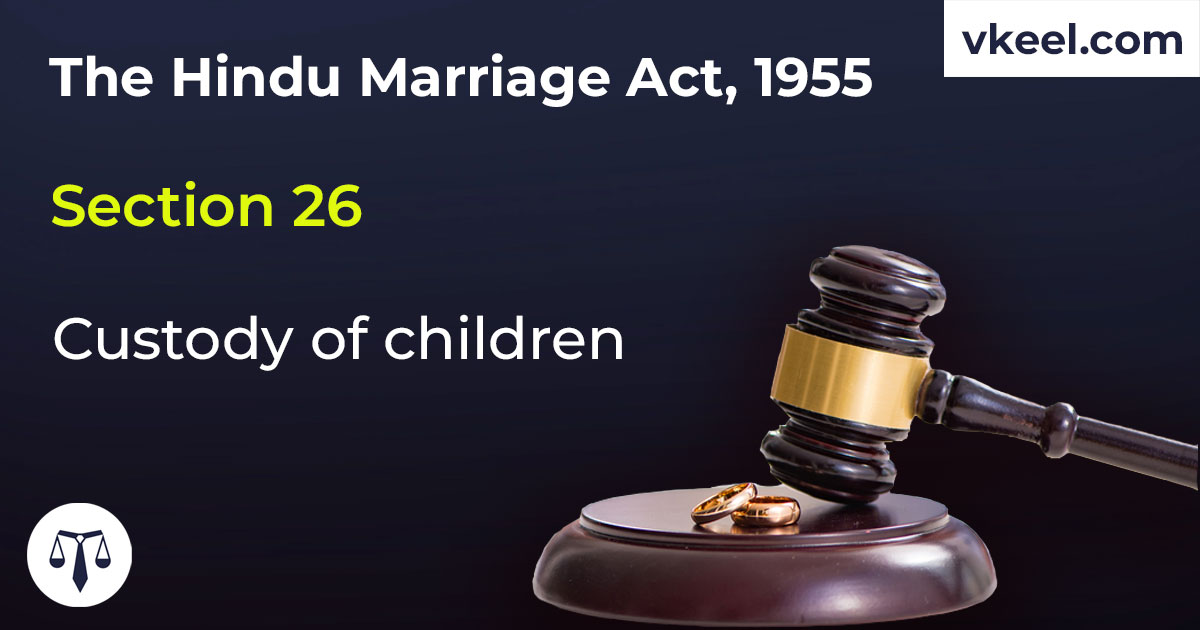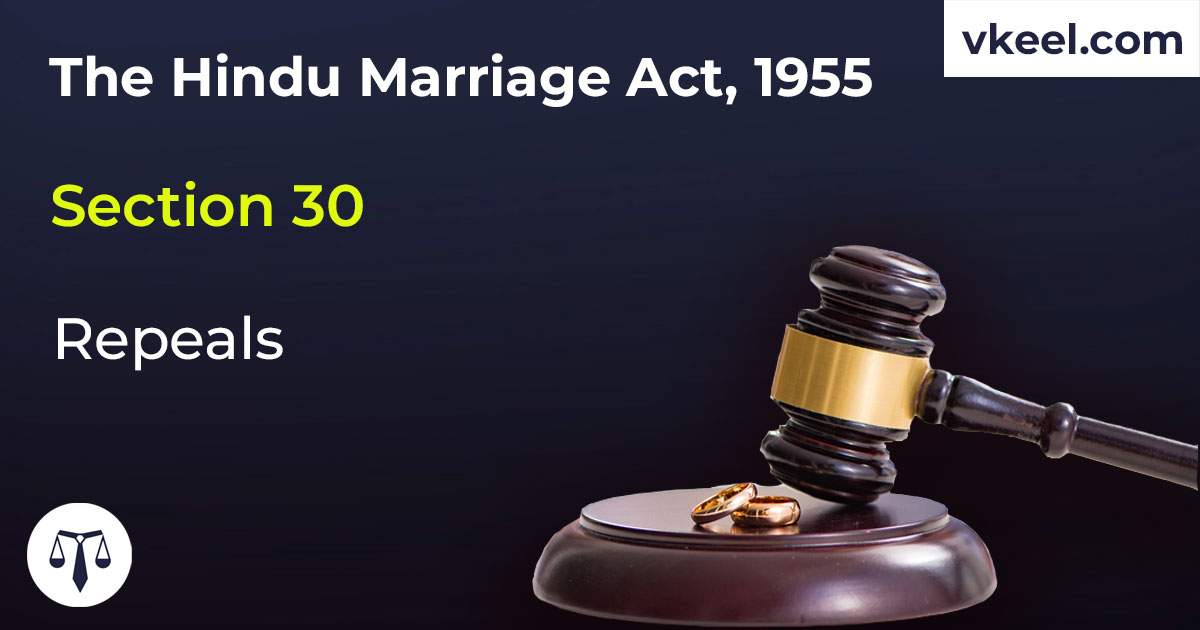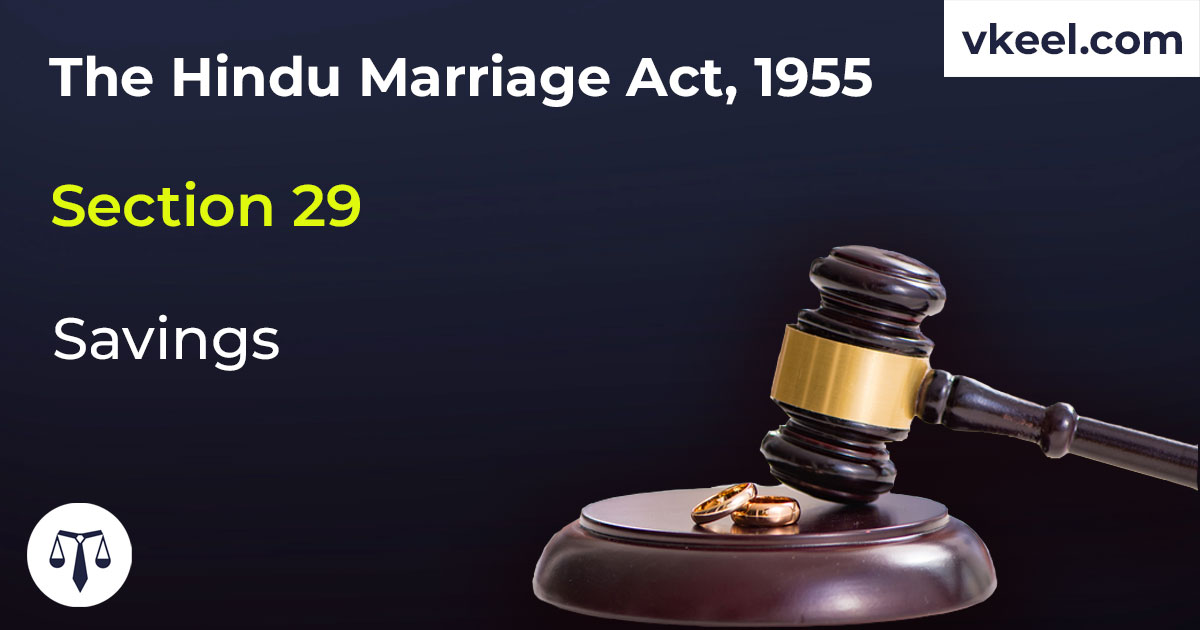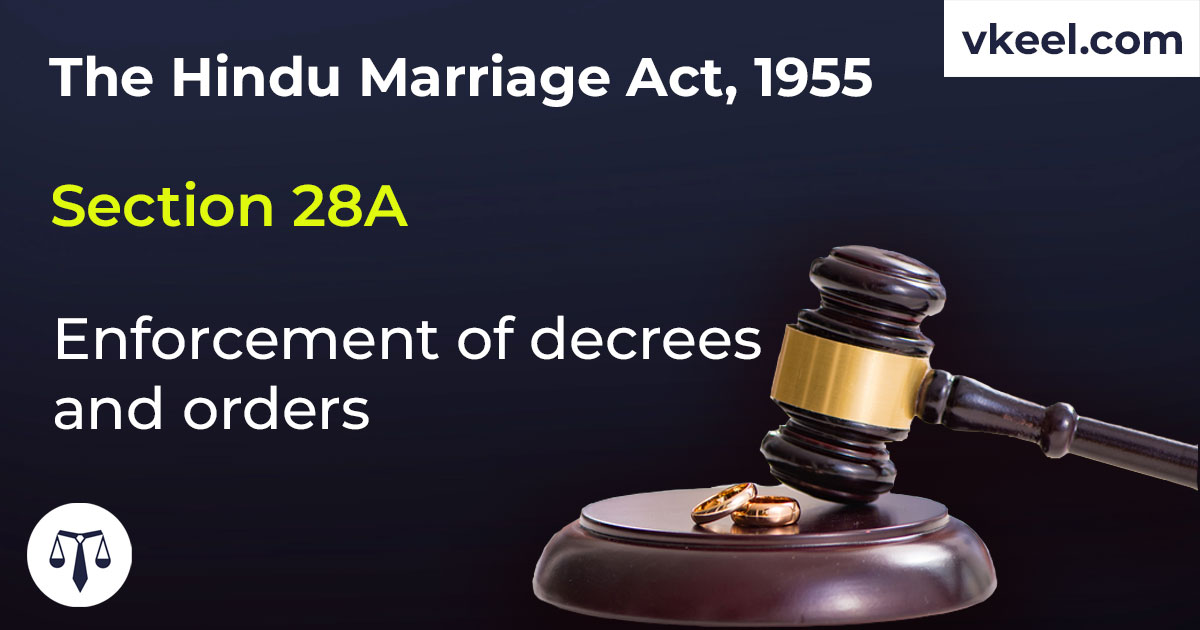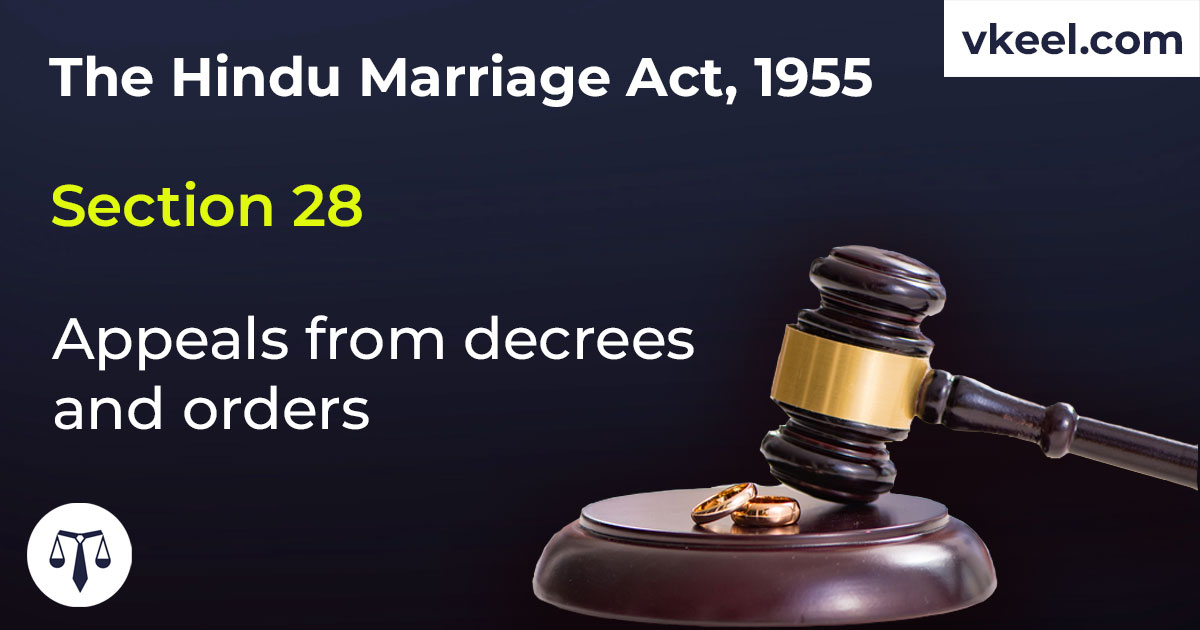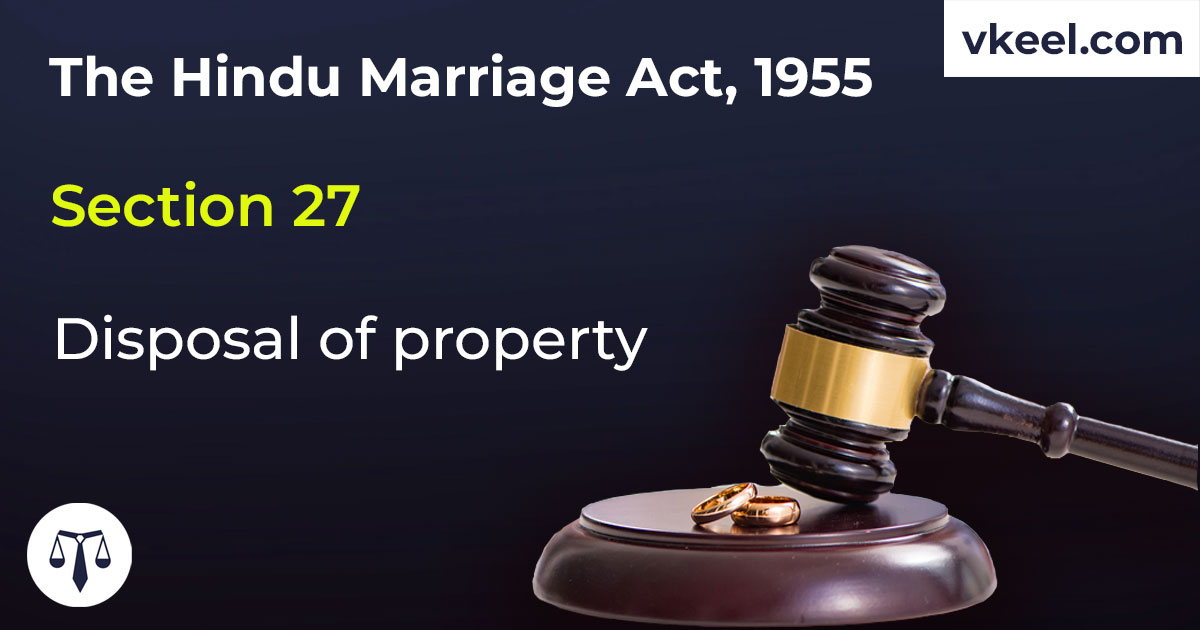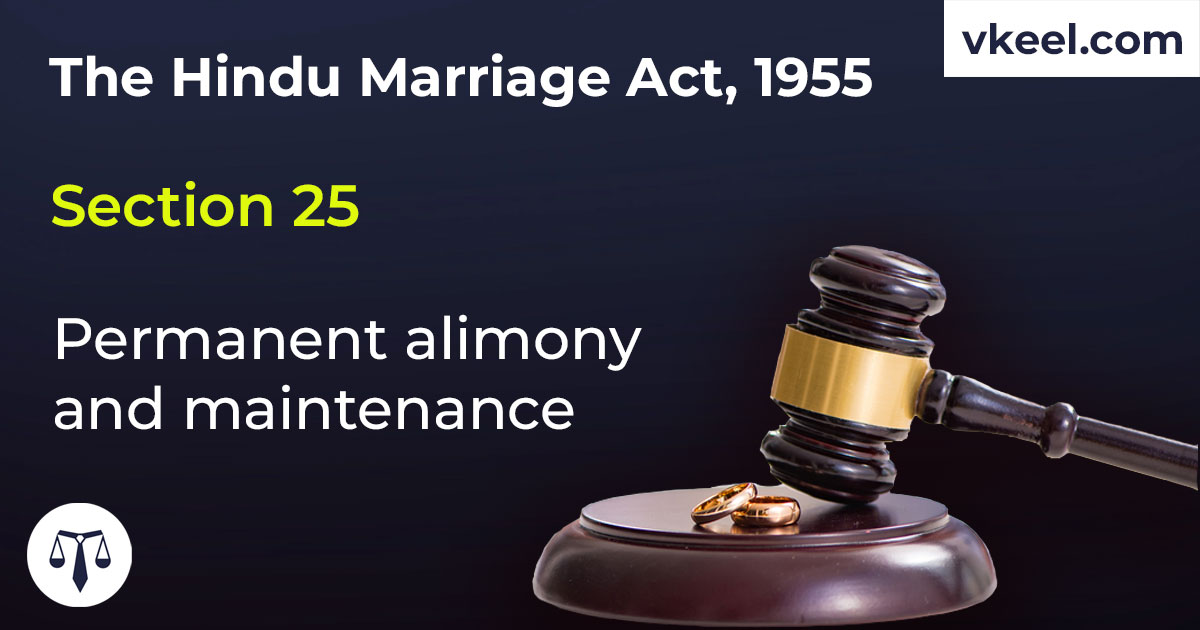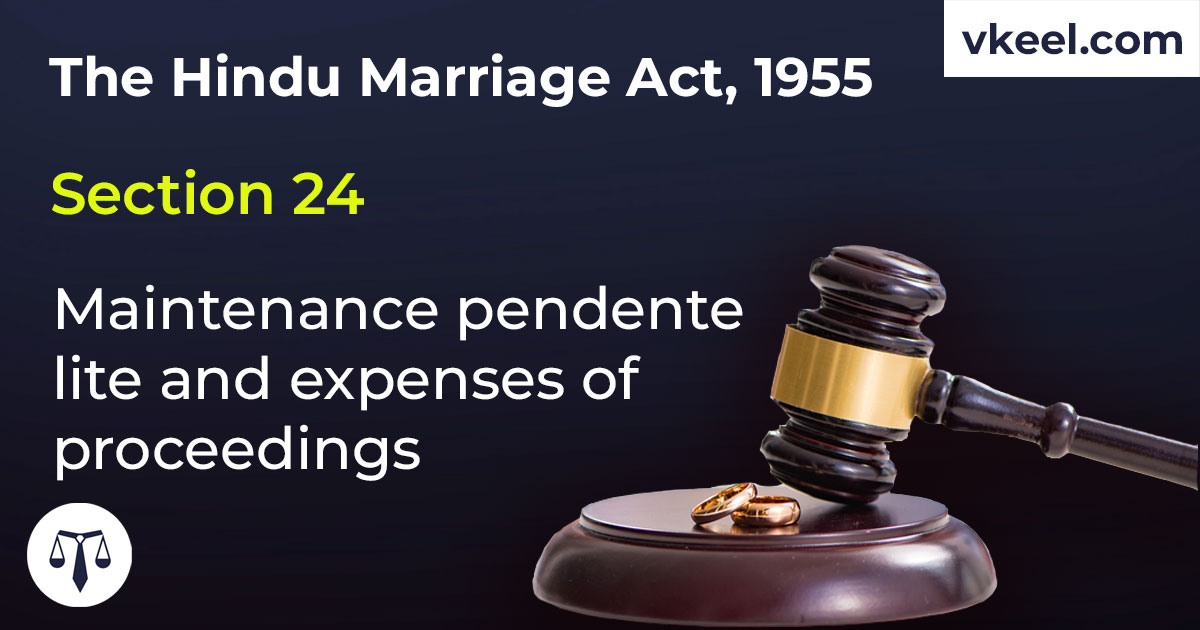Section 26 Hindu Marriage Act 1955 – Custody of children
By Vkeel Team
Table of Contents
Description
“Section 26 Hindu Marriage Act 1955”
In any proceeding under this Act, the court may, from time to time, pass such interim orders and make such provisions in the decree as it may deem just and proper with respect to the custody, maintenance and education of minor children, consistently with their wishes, wherever possible, and may, after the decree, upon application by petition for the purpose, make from time to time, all such orders and provisions with respect to the custody, maintenance and education of such children as might have been made by such decree or interim orders in case the proceeding for obtaining such decree were still pending, and the court may also from time to time revoke, suspend or vary any such orders and provisions previously made:
1Provided that the application with respect to the maintenance and education of the minor children, pending the proceeding for obtaining such decree, shall, as far as possible, be disposed of within sixty days from the date of service of notice on the respondent.
Role of the Court in Deciding Custody of Children Under Section 26 Hindu Marriage Act 1955
The court plays a crucial role in deciding the custody of children under Section 26 Hindu Marriage Act 1955. This section provides that the court may, in any proceeding under the Act, pass such orders and make such provisions in regard to the custody, maintenance and education of minor children, as it may deem just and proper.
The court is vested with the power to decide the custody of children in the event of a divorce or separation. The court is required to consider the welfare of the child as the paramount consideration while deciding the custody of the child. The court is also required to take into account the wishes of the child, if the child is of sufficient age and understanding. The court may also consider the wishes of the parents, the capacity of the parents to provide for the child, the age and sex of the child, the character and capacity of the parties, the likelihood of any change in the circumstances of the parties, and any other relevant factor.
The court may also consider the nature of the relationship between the child and each of the parents, the ability of each parent to provide a secure and stable environment for the child, the ability of each parent to provide for the child’s physical and emotional needs, and the ability of each parent to provide for the child’s educational and other developmental needs. The court may also consider the ability of each parent to provide for the child’s religious and cultural needs.
The court may also consider the ability of each parent to provide for the child’s medical and health needs, the ability of each parent to provide for the child’s financial needs, and the ability of each parent to provide for the child’s emotional and psychological needs. The court may also consider the ability of each parent to provide for the child’s social needs.
The court is required to take into account all relevant factors while deciding the custody of the child. The court is required to make an order that is in the best interests of the child. The court is also required to ensure that the order is fair and just to both parties. The court is also required to ensure that the order is in accordance with the principles of natural justice.
How to Navigate the Custody of Children Process Under Section 26 Hindu Marriage Act 1955
Navigating the custody of children process under Section 26 Hindu Marriage Act 1955 can be a complex and difficult process. It is important to understand the legal framework and the rights of both parents in order to ensure that the best interests of the child are taken into account.
The first step in the process is to understand the legal framework. Section 26 Hindu Marriage Act 1955 states that the court shall have the power to make orders regarding the custody of any minor children of the marriage. The court will consider the welfare of the child as the primary consideration when making a decision. The court may also consider the wishes of the parents, the age and sex of the child, the capacity of each parent to provide for the child, and any other relevant factors.
The next step is to understand the rights of both parents. Both parents have the right to seek custody of their children. The court will consider the best interests of the child when making a decision. The court may also consider the wishes of the parents, the age and sex of the child, the capacity of each parent to provide for the child, and any other relevant factors.
The third step is to prepare for the court hearing. It is important to be prepared for the court hearing by gathering all relevant documents and evidence. This includes any medical records, school records, and any other documents that may be relevant to the case. It is also important to be prepared to answer any questions that the court may have.
The fourth step is to attend the court hearing. At the court hearing, both parents will have the opportunity to present their case and make their arguments. The court will then make a decision based on the evidence presented and the best interests of the child.
Navigating the custody of children process under Section 26 Hindu Marriage Act 1955 can be a complex and difficult process. It is important to understand the legal framework and the rights of both parents in order to ensure that the best interests of the child are taken into account. By following these steps, parents can ensure that their children are provided with the best possible care and protection.
Rights of Custody of Children Under Section 26 Hindu Marriage Act 1955
Section 26 Hindu Marriage Act 1955 deals with the rights of custody of children. This section states that the father of a child born out of a Hindu marriage shall have the right to the custody of the child, unless the court decides otherwise.
The court may decide to grant custody of the child to the mother or any other person if it is in the best interests of the child. The court will consider various factors such as the age of the child, the wishes of the child, the mental and physical health of the parents, the financial and emotional stability of the parents, and the ability of the parents to provide a safe and secure environment for the child.
The court may also consider the wishes of the child, if the child is of sufficient age and understanding. The court may also take into account the wishes of the parents, provided that they are in the best interests of the child.
The court may also consider the wishes of the child’s grandparents, if they are willing to take on the responsibility of caring for the child. The court may also consider the wishes of any other person who has been caring for the child, such as a guardian or a foster parent.
The court may also consider any other relevant factors that it deems necessary in order to make a decision that is in the best interests of the child. The court may also appoint a guardian for the child, if it is deemed necessary.
In conclusion, Section 26 Hindu Marriage Act 1955 provides for the rights of custody of children born out of a Hindu marriage. The court may grant custody of the child to the mother or any other person if it is in the best interests of the child. The court will consider various factors such as the age of the child, the wishes of the child, the mental and physical health of the parents, the financial and emotional stability of the parents, and the ability of the parents to provide a safe and secure environment for the child.
1. Ins. by Act 49 of 2001, s. 9 (w.e.f. 24-9-2001).
Description Source: indiacode
Disclaimer:
The information provided in the article is for general informational purposes only, and is not intended to constitute legal advice or to be relied upon as a substitute for legal advice. Furthermore, any information contained in the article is not guaranteed to be current, complete or accurate. If you require legal advice or representation, you should contact an attorney or law firm directly. We are not responsible for any damages resulting from any reliance on the content of this website.

